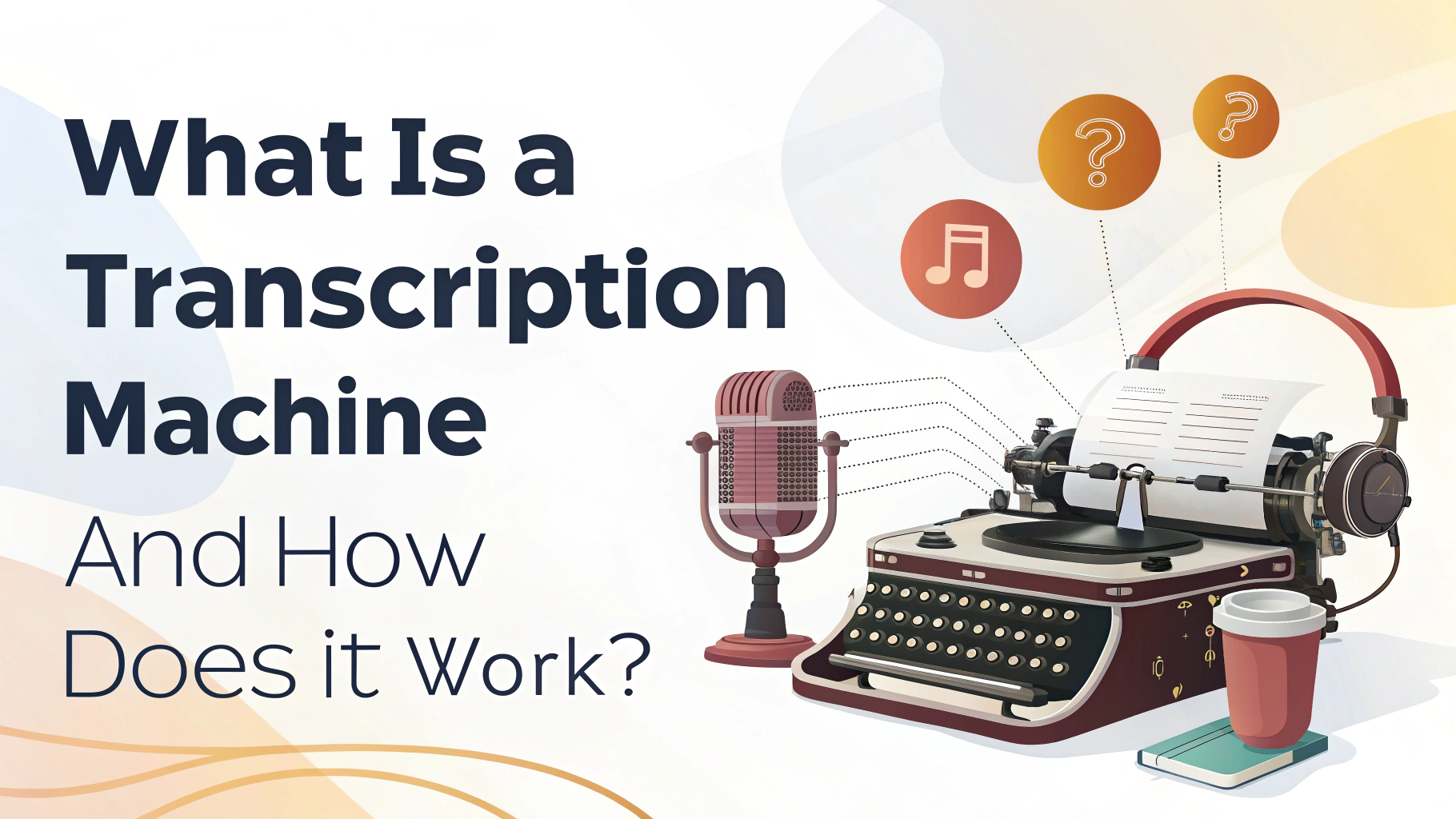A transcription machine is a specialized device that helps convert spoken audio into written text, often used by professionals in legal, medical, and business settings. It typically plays back recorded audio with features like variable speed, foot pedal control, and noise reduction to improve precisione e l'efficienza.
Understanding the Purpose of a Transcription Machine
Transcription machines are designed to simplify the process of listening and typing at the same time. These machines enable transcriptionists to control audio playback hands-free, allowing them to focus solely on converting speech into written form.
Key Features of a Transcription Machine
Most transcription machines come equipped with:
- Foot Pedal Controls: Let users play, pause, rewind, or fast-forward without using their hands.
- Adjustable Playback Speed: Allows listeners to slow down or speed up the audio for clarity.
- Headphone Support: Offers clear, isolated audio, essential for understanding difficult accents or noisy recordings.
- Time-Stamping Options: Useful for legal or media transcription where accuracy is vital.
Types of Transcription Machines Available Today
There are two main types:
Analog Transcription Machines: Used for cassette tapes; increasingly rare.

Digital Transcription Machines: Work with audio files like MP3, WAV, or DSS, and offer better quality and compatibility with transcription software.

How a Transcription Machine Works Step-by-Step
- Load Audio File or Cassette: Insert a tape or upload a digital recording.
- Connect Foot Pedal and Headphones: Setup hardware for hands-free control.
- Use Playback Functions: Control speed, pause, and rewind while typing.
- Transcribe Text in Real-Time: Enter transcribed text into a word processor or specialized transcription software.
Transcription Machines vs Transcription Software
While software solutions like Otter.ai and Descript use AI to generate transcripts automatically, transcription machines offer more control and are often preferred by professionals for accuracy, especially in fields like:
- Trascrizione medica
- Legal documentation
- Academic interviews
Who Should Use a Transcription Machine?
Transcription machines are ideal for:
- Medical Transcriptionists: Accuracy is crucial for patient records.
- Court Reporters or Legal Assistants: Where every word may be legally significant.
- Researchers and Journalists: Who need verbatim transcripts of interviews or field recordings.
Popular Brands of Transcription Machines in 2025
Some of the most trusted transcription machine brands include:
- Olympus
- Philips
- Sony
- Grundig
- Dictaphone
These brands offer both hardware and digital kits for beginners and professionals.
Best Transcription Software Options: VOMO and Other Top Tools
When looking for reliable and efficient transcription tools, software like VOMO stands out for its accuracy and simplicity.

VOMO offers AI-powered transcription with speaker identification, timestamps, and multilingual support. Other popular tools include Otter.ai, Rev, and Descript, each catering to different needs—whether it’s real-time transcription, meeting summaries, or podcast editing. Choosing the right software depends on your specific use case, budget, and integration needs.
Final Thoughts: Do You Need a Transcription Machine?
If your work involves frequent, detailed transcription, investing in a transcription machine can significantly improve speed and accuracy. While AI tools are advancing, human-powered transcription using reliable machines still dominates industries where precision matters most.


